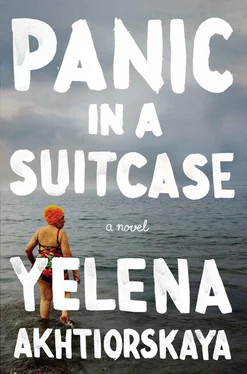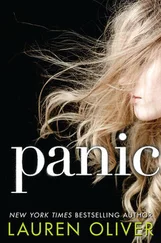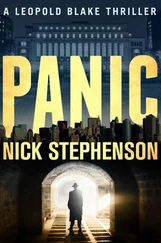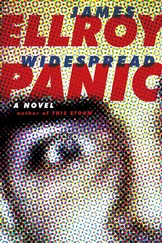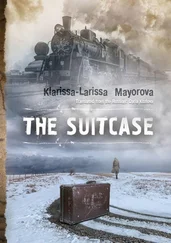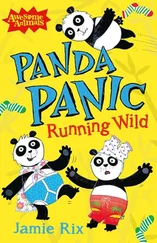Though the evening’s caliber was excessive, shades of sloppiness were ubiquitous. All the elements of a superb party were there — beluga caviar, Krug champagne, a microphone. Maybe this was the problem. A checklist was in the air. People wore their best attempts, no one capable of trying harder. But the plates didn’t match, and there were volume-control issues with the speakers, which to some extent had to be the case at every party that tried for matching anything. Usually only the hostess noticed flaws, her guests remaining oblivious, but now no one was oblivious except the hostess. Were these evenings played out, or was Renata exhausted? Prior to settling beside Pasha, she’d picked up a glass of cognac someone had left behind. A hostess’s reflex: clear abandoned drinks. But after five minutes of rotating the glass in her fingers, she took it down.
A proper hostess never stayed in one spot for long, even if that spot was beside the guest of honor. A goosey girl with hypersensitivities and self-abnegating tendencies took Renata’s place, balancing a large plate on her bony knees. The food was artistically arranged. The colors, the proportions — marvelous. The creative act was still in progress as she commenced moving the food around with delicate but assured strokes of the fork. That she was coming to public events was a miracle — or a modern psychiatric marvel. Pasha found a window. A joint was being passed around. It didn’t evoke the appropriate Russian-intelligentsia-dabbling-in-dope feel but a cows-out-to-pasture one. Admittedly, he was afraid of it and looked in the other direction while remaining acutely aware of the joint’s location, particularly as it neared him. The roach was tiny and wet when he lent it his own dab of saliva. The smoke scratched an itch in his left lung, an itch he didn’t know he had. Renata Ostraya began to seem like a tragic figure. Misha circulated throughout the room, manic, a brochure of twitches. It was as if time were manipulating him more savagely. He shot glances at Pasha. His eyes were like photographed cat eyes, not glowing neon but glowing paranoid. Who was Pasha talking to? And did Pasha notice who Misha was talking to? Because Misha talked to a bouquet of interesting, accomplished people — poets, critics, the painter Dolbintsov, prose writer Bliznyats, Misha knew them all, and the young woman by the glass menagerie collection, too, the one in the black dress, a turtle in her palm.
Pasha, evidently, had been staring. Her composure captivated — amid a murmur of still-crinkly conversation, the handling of drinks and utensils, crowd maneuverings, female and male laughter (starkly different), the young lady gave the impression of perfect stillness. Which was advantageous, as it afforded an opportunity to admire her plump white arms and champagne-glass waist.
That’s Lilya, said Misha. Her father’s an experimental filmmaker, mother a Bulgarian puppeteer. She drinks coffee, translates ancient Bulgarian philosophers. I tried, most do. Her younger sister, Elza, is even more beautiful, but haunting. She lacks something human.
In another corner, an hour or so later, Ostraya’s crystalline voice: Not enough affection from your mother. A distant relation put a curse on you as a child. It hasn’t been lifted. You trust people too much. Don’t eat mushrooms. Incorporate more alkalizing fruits and vegetables. Relationships don’t grow on a foundation of humor. You need to be tickled occasionally. Watch out for unusual headpieces. Loyalty is respectable until one day you find yourself the patron saint of a Potemkin village. Look around, be tempted. She leaned in. Dewdrops stood out along her hairline. This is the center — it’s thriving.
I’ve never felt a strong pull toward the center myself, replied Pasha. Maybe I’m a provincial at heart, rather like Gorky with his Nizhniy Novgorod than Chekhov, who thrust Moscow down throats. The center is dangerous. You can visit — in fact, you must — but it’s not wise to roost. Furthermore, are such matters so easily delineated? Is Brooklyn still the center? Different languages must have different centers. How do you repudiate Moscow’s claim? We are Russian speakers after all. Not to mention that the center shifts as one gets older. Bach, Shakespeare, Pushkin. Listening to the cantatas, am I not in the center?
How much of this had Pasha said? Aloud he’d probably no more than shrugged. When he looked up, Renata was nowhere in the vicinity — or there she was, across the room, petting a young woman’s braid. Maternal, vicious. But Pasha continued responding to her… question? accusation? Since when was simply remaining in the city of one’s birth an act of loyalty, as if a person without will would just float off across the Atlantic?
Though Odessa wasn’t the city of his birth. Of this he often had to be reminded himself. Pasha was considered an Odessite of the first order, nobody aware that a technicality eliminated him from the running. Somehow an aura of secrecy, a stigma, had been generated around such a trivial circumstance, that Pasha’s birth certificate said Chernivtsi. This, too, the fault of his mother. Esther had chosen to wait out the last months of her pregnancy not in Odessa, where she’d been living with Robert’s parents (meaning, for the record, that’s where he was conceived), but with her own, in a house of wooden boards on a dirt road. There had been valid reasons for doing this, and she’d had to enumerate them so many times that she ended up questioning their validity herself, wondering if maybe there hadn’t been a bit of transgression to the decision after all, perhaps a response to the Nasmertovs’ city-folk pride. Her plan had been to return to Odessa a month or two after giving birth, but with the birth of a poet there were bound to be complications. Pasha first entered city limits at a shameful eighteen months. Arguably the most critical year of his life, depending which Freudian you asked, had been spent struggling for survival in Chernivtsi, a fact he could wield in response to the numerous accusations that his poetry didn’t comply in this or that way with the spirit of Odessa. The Odessa poets felt that he was making use of the city without paying the obligatory dues. He could’ve renounced his claim on the city; instead he felt the opposite pull, to out-Odessa them all.
Why don’t you sit down, said Misha. That was strong stuff.
What did you tell Ostraya about me?
Not a thing. If she knew anything, it was intuition.
They stood by the table picking at olive puffs and soggy crostini. Misha pounced on the trail of a pleated skirt. Others swarmed around the guest of honor. They asked questions, requested opinions, and, having tasted of the evening’s exotic fruit, went on their way. A few poets remained. Pasha was enjoying their company. They were ensconced in a fog of their own making. In reaching for a pig in a blanket, a pale lady elbowed Nurzhan Bozhko, whose poetry was passable and nose exquisite in its resemblance to Pushkin’s — long and straight, keeping neatly to the face, with an extended tip like a dagger. Startled, he picked up the entire serving plate and handed it over. She, in turn, was equally baffled and stared imploringly at Pasha, who burst into preposterous laughter, since it seemed as if this young lady were delivering the massive platter personally to him. He relieved her of the burden, finding it far heavier than expected; if not for Bozhko’s quick reflexes, there would’ve been quite a mishap, but as it was, only a few piggies tumbled to the floor.
An inexplicable charge passed through the group at the appearance of a physically unremarkable man with a pink face and small gleaming eyes. Andrei Fishman, the man said, and zapped Pasha with a handshake. Andrei clearly had many abilities, but standing in place wasn’t among them. He led the group up the building’s stairs until they arrived at a steel door that yielded when pushed hard (at least it appeared to take considerable effort) and emerged on a roof. The bottoms of their shoes scraped against a sandpapery surface as they stepped into and out of overlapping shadows, navigating incremental darkness. Finally they came to the edge and overlooked a black crater that slowly began to inflate. It grew upward at them. Central Park. The night was starless, but the stacked and staggered lights of distant skyscrapers served just as well. Pasha, a nonsmoker, partook in the collective cigarette breath and was just about to hear a thought for the first time in hours when snatched up by Andrei, whose outsize libido powered myriad undertakings that were quickly interwoven into conversation. Editor of two journals; head of an émigré reading series; poet and prose writer and Pulitzer Prize — winning journalist (for his series on the mentally ill in adult homes); presided over this and that board; psychiatrist; second residence in Moscow, third in Tuscany; about to get married to his fifth wife in Montreal; accompanied to the party by one of his ex-wives and her elderly father, who’d once spent a weekend at Pasternak’s dacha and could tell Pasha all about it. Pasha observed without attempting to keep up. To watch one of Andrei’s pale, freckled arms slice the night air was enough. He had a giant watch and healthy fingernails. Probably in response to a question, Andrei said, At night I sleep very well. None of my previous wives could sleep, and maybe that’s why they’re not my wives anymore. I can’t be kept up. Their anxieties inexorably came to a head after midnight. They preyed on my rest. So this time I chose differently — Martha’s a superior sleeper, the best I’ve met. Nothing can prevent her from it. Whenever there’s a break in stimulation, she dozes off, no matter where she is. No available seats on the subway, she naps standing up. She’s very resourceful. I think she would’ve done very well in the gulag. It’s refreshing to be with such a fine woman, especially as I embark on my hydro years.
Читать дальше
